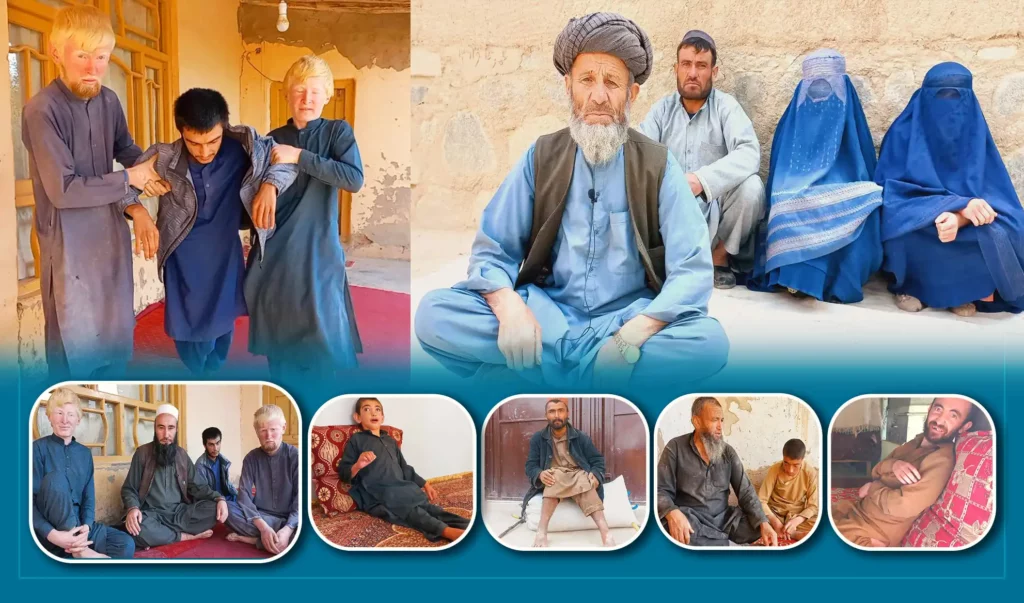TALOQAN (Pajhwok): Residents of Kalafghan district of northern Takhar province say children from consanguineous marriages born with genetic diseases.
Rajab Ali, 64, a resident of Sarqaroq area, told Pajhwok Afghan News that he married his cousin nearly 50 years ago and they have four children (two girls and two boys) all having disabilities.
He added: “These four children were healthy when they born, but they became disabled after the age of 5 and 6 years, and I have been facing serious problems in supporting and caring of my disabled children. So far neither the government nor any NGO has paid attention to us.”
Habibullah, another resident, said: “32 years ago, I married the daughter of my maternal uncle. We have nine children, one of them is disabled.”
He said the signs of disability gradually appeared his son’s body and after several years, he was now even unable to walk. “All family members are busy talking care of him.”
According to him, no organization has supported people with disabilities in their area.
Khwaja Ahmad, another resident of the area, who is married to his cousin, said that most elders of their area have married close relatives without considering diseases that run in the family and now their children have physical disabilities.
According to him, four out of six children in each family are disabled and a burden on them.
Ahmad said children born in their area after reaching 10 to 15 years gradually show signs of physical and mental disabilities, and after several years they are not even able to walk.
However, Naqibullah Formoli, development council head of Sarqaroq area, says that nearly four hundred families live in the place, and many have disabled children and these families are also facing economic challenges.
He said there were about 100 disabled people in Sarqaroq area and the main reason was consanguineous marriages.
On the other hand, health experts in Takhar consider consanguineous marriages, lack of healthy nutrition during pregnancy and arbitrary use of medicine as factors of genetic diseases.
Syed Milad Hasanpour, an expert in the field of health in Takhar, says that the increase in the number of children with disabilities is alarming as seven out of ten disabled children belonged to couples who are close relatives.
He added about 70 percent of disabled children were born to couples who were close relatives.
Pajhwok reporter contacted Public Health Department officials for comment, but failed despite repeated attempts.
However, Maulvi Fazul Haq Rasa, head of Takhar’s Martyrs and Disabled, says that about 2000 naturally disabled people, including genetically disabled people, are registered with their office, but assistance is given to war disabled people. “These people are also provided assistance according to the principles and receive monthly salaries.”
He assured families of genetically disabled persons could register their children and benefit from the rights and privileges that the government has considered for them.
While talking to Pajhwok, a number of doctors had previously emphasized taking serious care and not using arbitrary drugs during pregnancy to prevent the birth of malformed children and said that efforts should be made to avoid marriage with close relatives.
sa/ma








GET IN TOUCH
NEWSLETTER
SUGGEST A STORY
PAJHWOK MOBILE APP